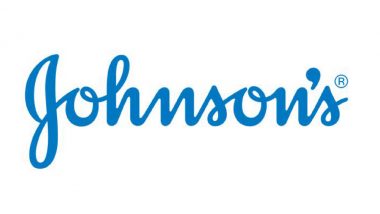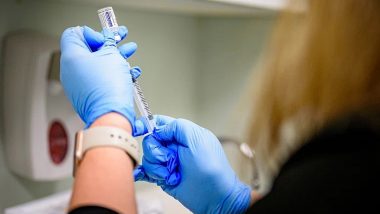Jerusalem, September 4: A COVID-19 vaccine candidate, co-developed by the American multinational company Johnson and Johnson, raises neutralising antibodies that robustly protect hamsters against severe infection with the novel coronavirus, according to a study.
The research, published in the journal Nature Medicine, demonstrated that the vaccine elicited robust immune response in Syrian golden hamsters, and prevented severe clinical disease including weight loss, pneumonia, and death.
The vaccine, co-developed by the Beth Israel Deaconess Medical Center and Johnson & Johnson (J&J), uses a common cold virus, called adenovirus serotype 26 (Ad26), to deliver the SARS-CoV-2 spike protein into host cells, where it stimulates the body to raise immune responses against the coronavirus. COVID-19 Vaccine Update: WHO Says Widespread Vaccination Not Possible Until Mid-2021.
"We recently reported that an Ad26-based SARS-CoV-2 vaccine provided robust protection in rhesus macaques, and this vaccine is currently being evaluated in humans," said Dan Barouch, Director of BIDMC Center for Virology and Vaccine Research.
"However, nonhuman primates typically don't get severe clinical disease, and thus it was important to study whether this vaccine could prevent severe pneumonia and death due to SARS-CoV-2 in hamsters, which are more susceptible to clinical disease," Barouch said.
The scientists developed a series of vaccine candidates designed to express different variants of the SARS-CoV-2 spike protein, which is the major target for neutralising antibodies.
In the current study, they immunised Syrian golden hamsters with a single injection of the Ad26-based SARS-CoV-2 vaccine, which induced neutralising antibodies in all the test animals.
Four weeks later, when the hamsters were exposed to a high dose of SARS-CoV-2, the study found that vaccinated animals lost less weight, had less virus in their lungs and other organs, and also demonstrated lower mortality than unvaccinated control animals. COVID-19 Vaccine Update: Russia to Start Mass Vaccination of People Vulnerable to Coronavirus in November or December.
The scientists also found that neutralising antibody responses were inversely correlated with weight loss and viral loads in respiratory tissues. They said the vaccine is currently being evaluated in clinical studies to establish the performance of the vaccine candidate in humans.
"This hamster model of severe COVID-19 disease should prove useful to complement current nonhuman pri-mate models in the evaluation of candidate vaccines and therapeutics," Barouch said













 Quickly
Quickly




















